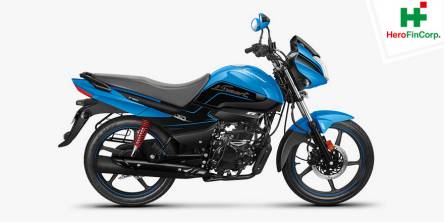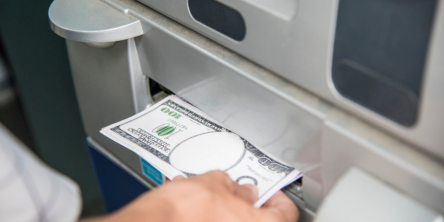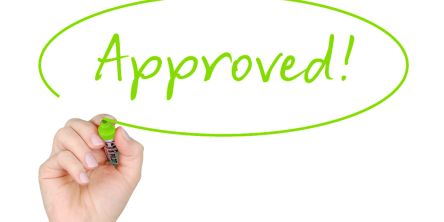Understanding Payday Loans
You might have heard the term “payday loans” before, but never really knew what that meant. Payday loans have roots that date back more than a century, as Pew research notes, with underground "salary lenders" offering one-week loans at high annual percentage rates (APR) ranging from 120 to 500 percent, similar to what payday lenders are charging now. If those who borrowed didn't pay them back, they were publicly shamed, extorted, had their wages garnished, or were threatened with job loss.
Today, payday loans are short-term cash loans that are based on the borrower's personal check. The borrower writes a check out to a lender in the amount borrowed, plus the finance charge. The check is held for future deposit, while the borrower receives cash in return. Typically the check is held until the borrower's next payday when both the loan and the finance charge come due in full. The borrower can pay the loan by allowing the check to be deposited or pay just the finance charge, rolling the loan over to the next pay period. There are some lenders that provide longer-term payday loans, with payments made in installments that are typically electronically withdrawn from the borrower's bank account on the borrower's pay date.
Here’s everything you need to know about understanding payday loans and how they work.
Payday Loan Amounts
Payday loans can range anywhere from just $100 to $1,000, depending on the legal maximum in the borrower's state. The average term is two weeks, which makes sense as many people are paid every two weeks. While many payday loans are paid off in two weeks, some states give you more time than that. The loans typically charge at least a 400% APR, with a finance charge that ranges from $15 to $30 to borrow $100. For a two-week loan, the finance chargers work out to interest rates from 390 to 780% APR. For a shorter-term loan, the APR is even higher. States that don't cap the maximum have the highest rates. In some states, payday loans aren’t allowed at all.
Who the Lenders Are
Payday loans are often taken out at payday loan stores. They may be stores that offer other financial services like check cashing, pawn options, or title loans. There are also online loans in Canada and the United States available, so the borrower doesn't even have to leave their home, with everything conducted via a website or mobile device.
Banks have also moved into the payday loan industry to earn more revenue. While traditional bank loans require qualification based on income, credit history, and assets, a payday loan from a bank is the same type of loan you'd get from a payday loan store, although they may go by a different name. In many cases, however, they can be worse than the loan obtained at a store because the bank has direct access to the borrower's checking account, and the borrower must agree to allow them to pull funds from the account to repay it.
Who the Borrowers Are
Payday loans are often marketed as "no credit check loans." It isn't necessary to have a good credit score or even a credit history. Getting approved is much easier than a traditional loan - most lenders simply require the borrower to be at least 18 years of age, have an active checking account, proof of income, and a valid ID. The loan is usually approved in a matter of minutes. As a result, they tend to be popular among those struggling with financial difficulties or experienced hardship, such as a vehicle breakdown and having no savings or access to credit.
Similar Articles
You can get a personal loan if you can boost your credit score. Several ways to increase your credit rating include checking your credit reports for mistakes and maintaining sound financial habits. This article will provide you with information on how to improve your credit score.
It's that time of year when the family starts to plan their summer holidays. If you're like most people, you'll want to take your caravan with you to make the most of your trip. But before you start packing, you'll need to make sure you have a Caravan Loan in place.
Personal loans are one of the most flexible forms of raising funds as these loans do not come with any kind of restriction on their usage. Whether you have to pay for the medical bills or you wish to go on a world tour, the borrowers have complete freedom to use the personal loans for almost any purpose they wish to
A personal loan is the first thing that comes to mind when we are in need of funds. The loan serves all purposes and helps meet personal needs, whether it is for home renovation or to meet an emergency medical expense.
Buying a two-wheeler is a matter of pride and passion. Most of us dream about buying a two-wheeler right from the day we start to earn. Two-wheelers do not come cheap and with the latest features and technology, they have become pricier. Manufacturers introduce new models from time to time and it can become difficult to take a pick.
One of the main things you should be doing is zeroing out your budget before each month. That way, you can look at every dollar you spend. This is known as 'zero-based budgeting.' While it doesn't mean you are zeroing out your bank account, it does mean you are accurately tracking your budgeting throughout each month.
All businesses need funds to grow and getting access to funds is easier said than done. If you are a business owner with aspirations to take your business to new heights, you are at the right place
A commercial loan is a common form of borrowing in the country. The loan is usually short term finance that is offered to businesses to meet their operation costs and capital expenditures. A business goes through various stages where it needs funds to grow and expand.
While we all try our best to live within our means, it doesn’t take much to put you in a situation when you need an injection of cash; it might be a sudden emergency medical bill, or your beloved car develops a serious engine problem or even an unexpected home-related repair.









